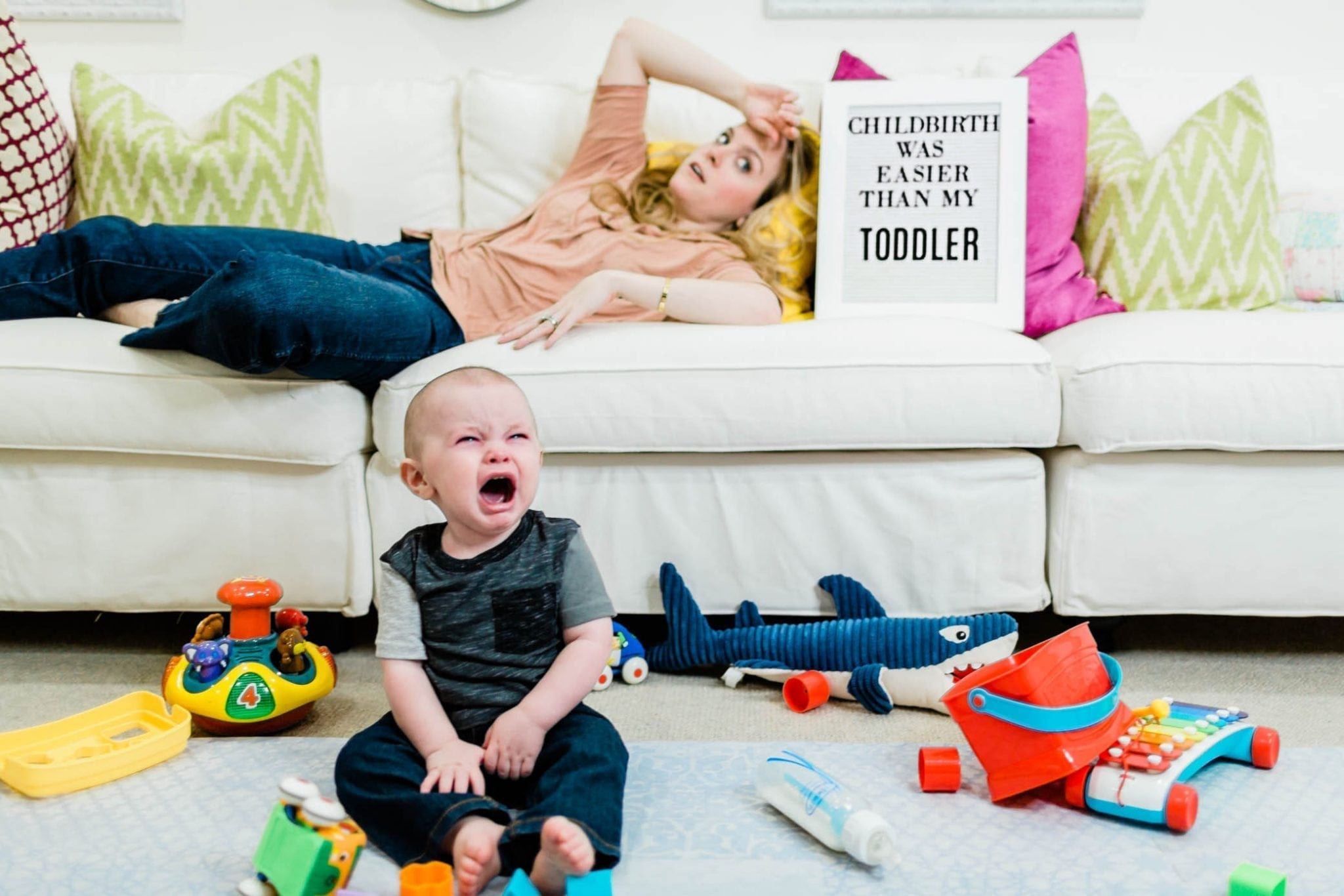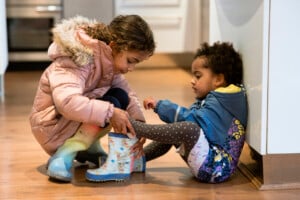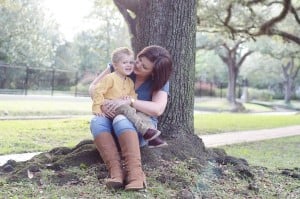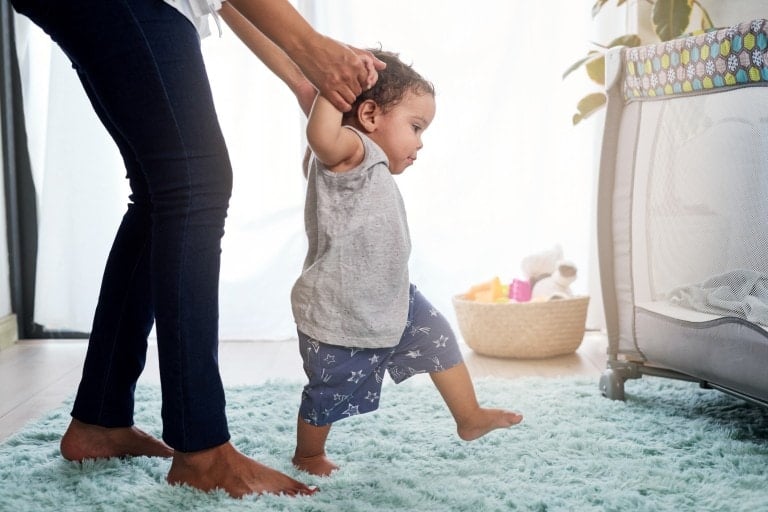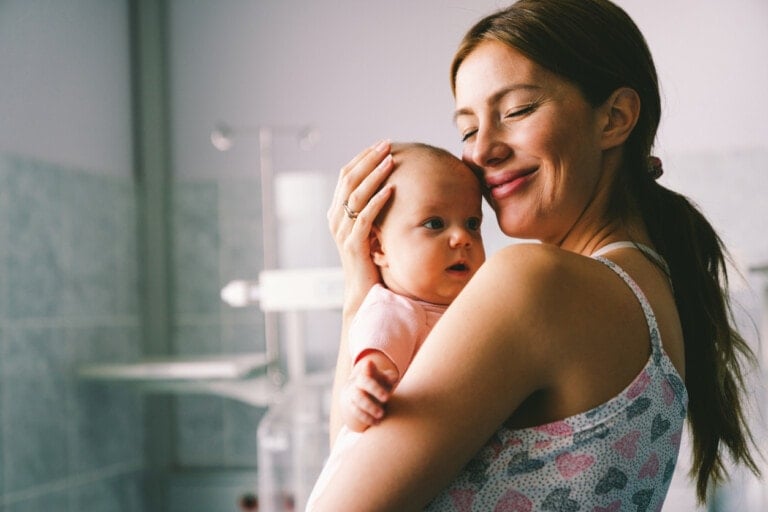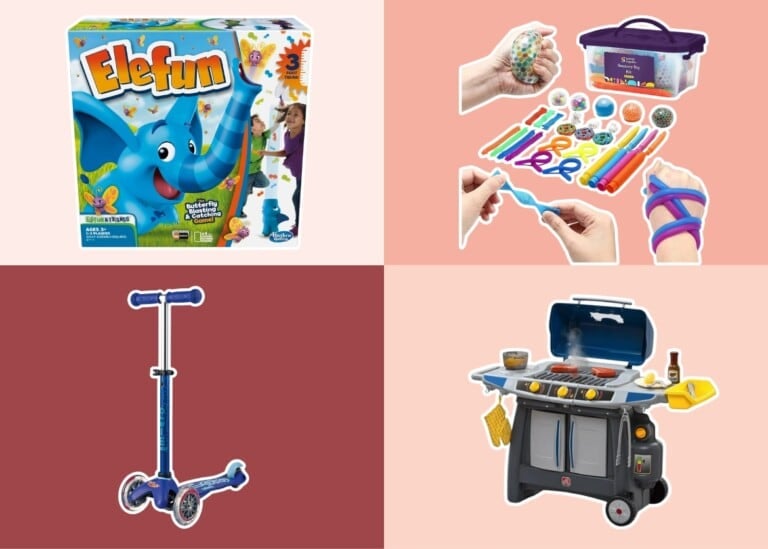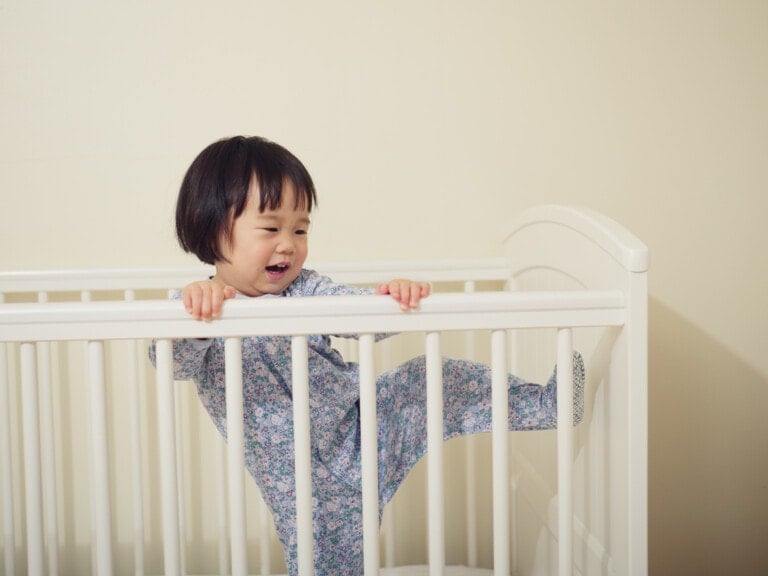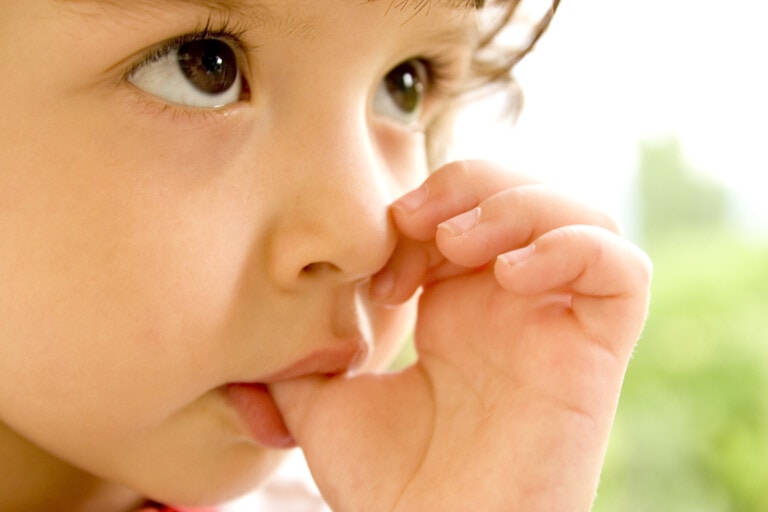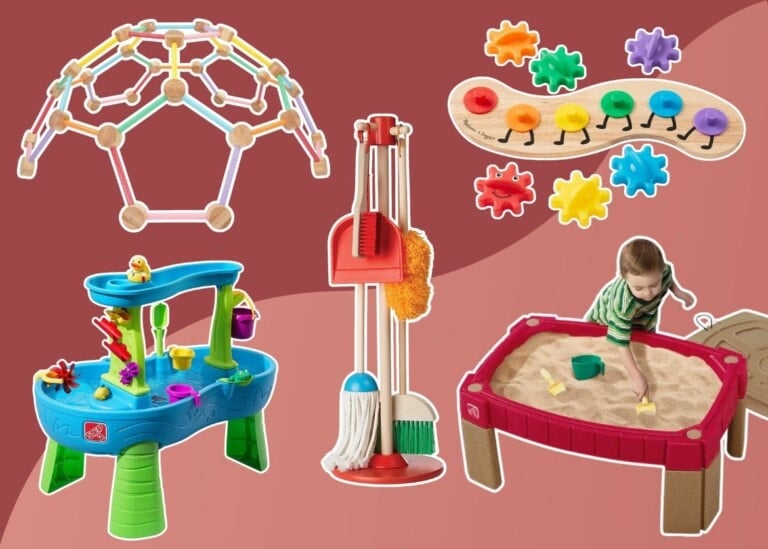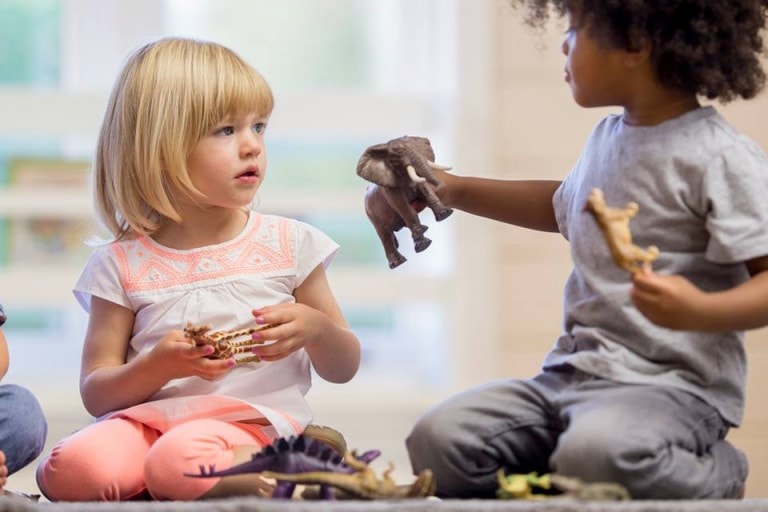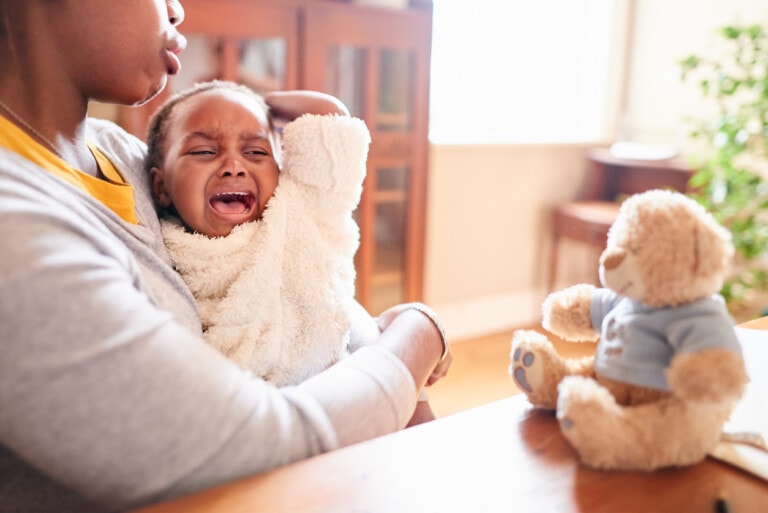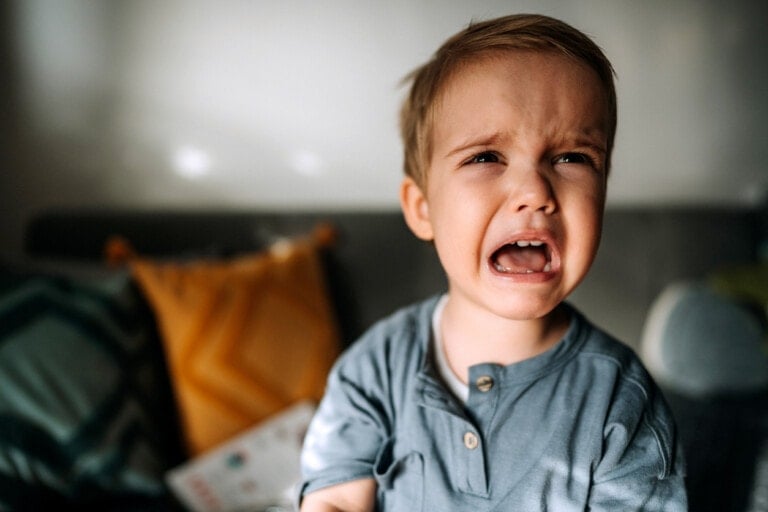We’ve all been there (well, parents of toddlers have anyway), standing in line at the grocery store, minding your own business when your little one spots something they like: a candy bar, a toy, etc. Inevitably, when you say no, there’s a good chance a tantrum is coming. Cue screaming, writhing, kicking, stamping . . . you name it! And you want the floor to open and swallow you up. Although tantrums are a normal part of childhood, it doesn’t mean they aren’t challenging, so let’s explore why they happen and some strategies you can use to tame them!
Why Do Toddlers Have Tantrums?
The first concept all parents need to recognize is that when toddlers have tantrums, they are not acting out on purpose. Usually, their behavior is in response to a lack of coping skills and a general lack of experience in handling certain situations. In addition, they aren’t very good at identifying or managing their emotions just yet.1,2
An important part of a child’s brain that’s in charge of self-regulation is not developed yet. Your toddler relies on the less mature, more primal parts of their brain: the emotion centers. During the toddler years, the emotional and impulsive part of the brain is in control. It is the most readily available part of the brain to deal with whatever happens in the child’s world. Your toddler’s brain still has a lot of development to do, and during those difficult situations, that new brain is doing its best with what it has.3,4
Here are other factors that make tantrums more likely to occur:1,2
- Temperament: Some children are more sensitive than others or react more strongly to changes in their routine or environment.
- Big feelings: We will explore more about toddlers’ brains in a moment, but there are certain big emotions they find particularly hard to cope with — shame, anger, and fear.
- Overstimulation: Their brains do a lot of learning and processing since everything is new, and they are like little sponges. So, they can become easily overwhelmed when they are overstimulated.
- Feeling hangry: When they are tired or hungry, they may also find it harder to cope, be resilient, or keep big feelings contained.
Understanding Toddler Brain Development
Let’s take a closer look at the development of your toddler’s brain. In babies, the first part of the brain to develop is the brainstem, which comprises the hindbrain and part of the midbrain.7 This is at the base of the skull, and it controls involuntary responses such as reflexes, breathing, and heart rate.3,4,5,6
The midbrain is the second part of the brain to develop during the first and second years. It comprises the limbic system, including the hypothalamus, amygdala, and hippocampus.8 These areas of the brain are responsible for controlling thirst, hunger, sleep, and moods, as well as perceiving and reacting to emotions, stress reactions, and creating new memories.3,4,5,6
The last part of the brain to develop is the forebrain, which is responsible for higher-level thinking, problem-solving, planning, decision-making, logic, and reasoning.9 The forebrain continues to develop through childhood and adolescence.3,4,5,6 Recent studies find that the higher-thinking logic centers of the brain are not fully developed until closer to age 25!10 So, during a toddler tantrum, we have several factors at play here:
Toddlers Have an Undeveloped Emotional Center
Our toddlers are working with the emotional center as the dominant part of their brain. Don’t forget that the emotional center is still not fully developed. The amygdala works very hard to perceive and analyze different emotions from other people, and the immature amygdala sometimes gets it wrong.11 It is then working hard to transfer that information into expressed emotion, and it can easily overreact or underreact.5,6
Toddlers Don’t Have Much Life Experience
Another factor we need to consider is life experience. Babies and young children learn through experience and repetition. Really, how much life experience and opportunity for repetition does a 2-year-old have? It may seem like you’ve told them to stop climbing on furniture a hundred times. But they are still learning that message and processing your level of emotion regarding it.1,2
Toddlers Have a Desire for Independence
For the past two years, your toddler has been eyeing the furniture, playground equipment, and staircase without the independence or physical skills to climb and explore. They have been (mostly) accepting whatever you decide to put in their mouth. But now, they will assert their own opinions. After two years of sitting in the shopping cart watching all the interesting, colorful items from a distance, your toddler can now touch the objects, hold them, ask for them, and react when they do not get them.
This desire for independence has been welling up, and now, in the form of a tantrum, it is spilling over without them having all the skills to manage it. Children typically have an explosion in their physical skills during the toddler years, while speech, language, and cognitive (thinking) skills struggle to catch up. This is when your child is running, and they don’t even know why. Or climbing, and they don’t even know where to. And begging for items, even if they don’t know what they are. A lot is going on in that little growing brain!1,2,4
How To Handle Toddler Tantrums
How does a toddler parent take all this information and manage their little ones? We need to start by remembering that they are not little adults. They do not have the skills we do to handle the situations they are in. They need us to control their environment, steer them in the right direction, keep them safe, distract them when necessary, and, most importantly, have never-ending patience. Easier said than done. Here are some tips to help you navigate your toddler’s tantrums:
1. Provide a safe and predictable environment with routines, structure, and boundaries so they know what to expect and have stability.12
2. Be affectionate and nurturing. They are figuring things out, and your support goes a long way.
3. Identify triggers and remove them when possible. Yes, your child needs to figure out how to manage big feelings when they come up, but timing is everything. If they are hungry or tired, a trip to the store (with bright lights and lots of noise and colors) is unlikely to help matters.
4. Help them solve problems on their own. Resist the urge to fix everything for them. As you support them in problem-solving, they learn independence, self-esteem, and essential life skills.13
5. Show them how to resolve conflict healthily and practice taking turns and sharing through games and activities. Praise them when they do these things on their own. Recognize how difficult it can be for them.
6. Help your toddler understand their feelings by naming them when you see them, exploring them, and discussing them. Also, identify strategies for managing each unique emotion. Sadness might be supported by having a hug or finding their favorite toy. Anger might be managed by taking deep breaths or jumping on the spot. This can help shift some of the energy coursing around their body.
7. Encourage empathy by helping them see others’ points of view.
8. Encourage playdates and playgroups to practice social interactions.
The best way to keep your toddler calm is by staying calm yourself. Remember, as soon as you start to debate with a toddler, you have already lost. Stay calm, focused, and patient. Their reactions are based on emotions, and they usually don’t have the skills to think and act logically. Now that you know what is going on in that little brain when they’re having a tantrum, it may be easier to be more understanding and help your toddler navigate these challenging years.













